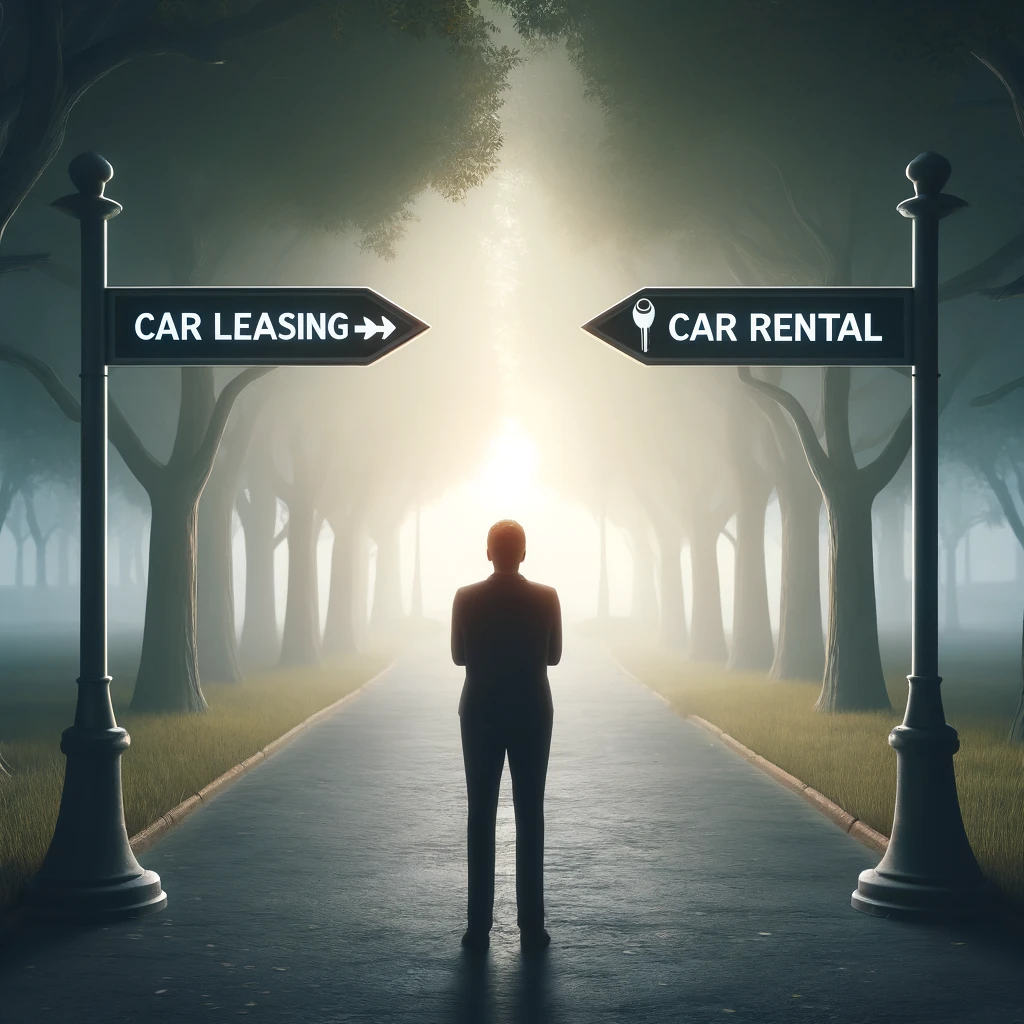
When deciding on acquiring a car for personal or business use, the choice often comes down to leasing or renting. Both options offer unique benefits and cater to different needs, preferences, and financial situations. Understanding the key differences between a car lease and a car rental can help you make an informed decision. This article explores each option in detail to guide you toward the best choice for your situation.
What is Car Leasing?
Car leasing is like renting a car for a longer period, typically ranging from two to four years. It involves a contract where the lessee pays a monthly fee to use the car for a set term with a mileage limit. At the end of the lease, the lessee can buy the car at a predetermined price, return it, or lease another vehicle.
Advantages of Car Leasing:
- Lower Monthly Payments: Leasing usually requires lower monthly payments compared to financing a car purchase.
- Latest Models: Leasing allows you to drive a new model every few years without dealing with selling an old vehicle.
- Warranty Coverage: Leased cars are typically under warranty, reducing concerns about major repair costs.
Disadvantages of Car Leasing:
- Mileage Restrictions: Leases come with mileage limits, and exceeding them can result in hefty fees.
- No Ownership: At the end of the lease, you don’t own the car unless you buy it. You’re paying for use rather than building equity.
What is Car Rental?
Car rental involves renting a vehicle for short periods, usually from a few days to a few weeks. It’s ideal for temporary needs, such as vacations, business trips, or when your own car is being repaired.
Advantages of Car Rental:
- Flexibility: Renting offers the flexibility to choose different vehicles for different occasions without long-term commitment.
- No Maintenance Worries: The rental company handles maintenance and repairs, so you don’t have additional costs.
- Immediate Availability: Rental cars are available immediately, providing a quick solution for temporary transportation needs.
Disadvantages of Car Rental:
- Higher Cost for Short-Term Use: Renting can be more expensive than leasing or owning, especially if you rent frequently.
- Insurance Costs: You might need to pay for additional insurance, increasing the overall cost.
Car Lease vs. Car Rental: Making the Right Choice
The decision between leasing a car and renting one depends on your specific needs:
- Duration of Use: If you need a vehicle for a longer period and prefer newer models, leasing might be better. Renting suits short-term needs or occasional use.
- Budget Considerations: Consider your monthly budget and the total cost of leasing versus renting to see which option fits your finances.
- Lifestyle and Mileage Needs: If you drive long distances often, the mileage limits of a lease might be restrictive. In such cases, buying or renting for short trips could be more practical.
Conclusion
Choosing between a car lease and a car rental depends on how long you need the vehicle, your budget, and your lifestyle. Leasing offers a cost-effective way to drive a new car every few years with lower monthly payments. Renting provides the utmost flexibility for short-term needs without the commitment to a single vehicle. By weighing the pros and cons of each option, you can select the one that best suits your requirements and financial situation.
Need a car?
You can find the best used car financing and leasing terms in London and Cambridge Ontario from us at ezeecredit.com
